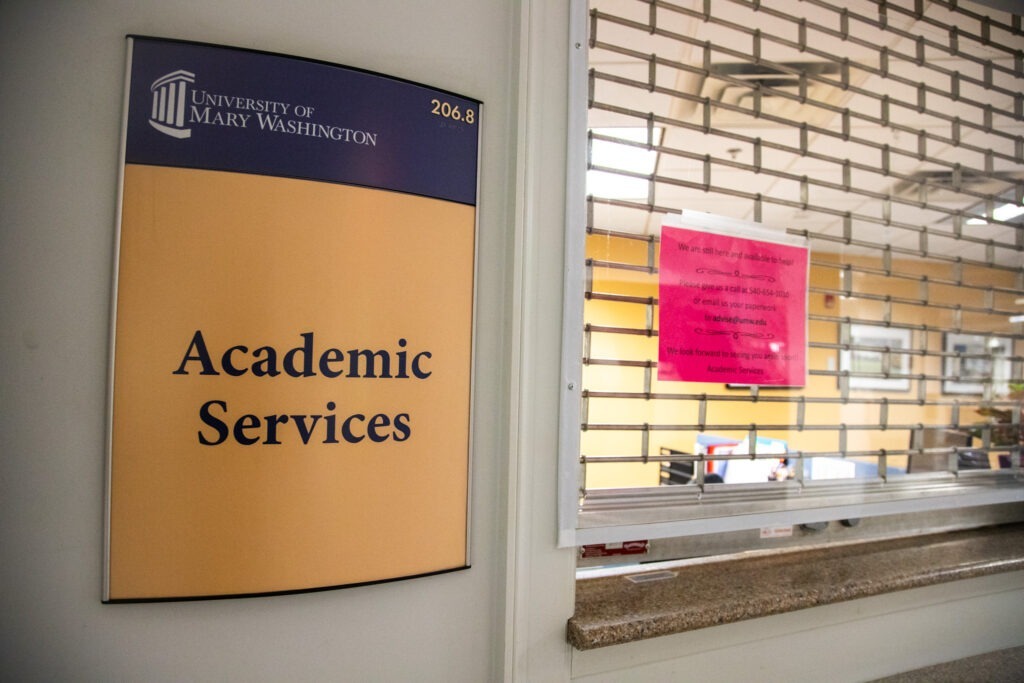UFC creates COVID withdrawal grading option
3 min read
Instead of the COVID-19 alternate grading scale from previous semesters, the University Faculty Council has implemented a new COVID-19 withdrawal option. | Emily Warren, The Blue & Gray Press
By LIZ FOSTER
Staff Writer
Despite not implementing alternate grading for the spring semester, the University Faculty Council has adopted a new COVID-19 withdrawal policy which will allow students to appeal for a withdrawal after the semester is over.
Students who want to use this new policy will have 21 days after final grades are posted to submit an appeal to Academic Services. This appeal should include the course or courses the student wishes to withdraw from and the rationale for the withdrawal. The appeal will then go to the governing body for administrative withdrawal, who will decide whether the student will be able to withdraw from the course. Students may request to withdraw any grade based on extenuating circumstances related to COVID-19.
Specific criteria for whether an appeal will be approved or denied has not yet been decided by the University Faculty Council, but every request will be reviewed by the committee on an individual basis and has been kept open to allow for a number of different circumstances. In the March 3, 2021 UFC meeting, Dr. Paul Fallon of the UFC committee gave an example of what a related circumstance might look like.
“We anticipated, for example, family members having Covid and the student having to take on greater responsibilities, perhaps for [something like] ensuring the online schooling of younger siblings. We anticipated a number of different situations,” he said.
The new policy comes after two semesters of alternate grading. Students have varying opinions on the policy and what it might mean for them going forward.
“I think that it was fair to have the first two semesters with the alternate grading scale. However, I feel as if by now we should be comfortable with online learning,” says sophomore Emily Packett. “While I understand in-person is not an option for everyone, it is available. I myself would like to go to grad school and the alternate grading could get in the way of that.”
Other students have different opinions about the policy.
“I feel as though, while [the policy was] well intentioned, it is detrimental to students who have a harder time learning virtually. We are still facing the added stress of a pandemic alongside a streamlined semester and everyone is burned out,” says senior geology major Trevor Gunn. “While giving the option to withdraw is a step, it ultimately does nothing but acts as a setback for students who are still struggling during these times. A withdrawal also means that students might be forced to stay at the university longer and would then add further financial stresses and setbacks for students.”
Thomas Bascom, a senior history major, also gave his opinion on the policy. “I feel like none of the policies or extension stuff really matters for me because I’m at a point where I can’t withdraw from any of my classes without having to stay for an extra year or semester. If I really needed alleviation from problems relating to the Covid learning atmosphere, I would ask a teacher to use the incomplete option.”
Rita Dunston of the University Registrar, and Wes Hillyard, Director of Academic Services, encouraged students to consider the consequences of how a withdrawal from a course could impact other academic issues. Dr. Andrew Dolby of the University Faculty Council recommends that if any students have questions about how the policy might affect their particular situation, they should make an appointment with an advisor in Academic Services.











